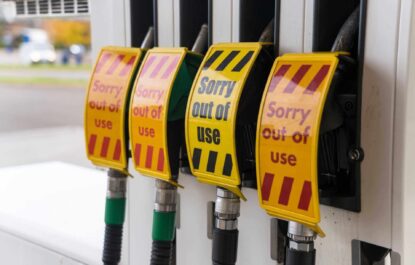The Risk Businesses Face
Energy catalyzes business functions. Without energy, there will be no business model. While large enterprises have the monetary bandwidth to purchase gas and use generators to create energy, small businesses cannot. Small enterprises depend on government subsidies and tax benefits to mitigate the escalating energy costs to stay afloat. Here’s the lowdown on how rising fuel prices amid a global energy crisis impact businesses:
Manufacturing costs
The energy crisis directly impacts businesses, both large and small. Energy costs are one of the most significant expenses for companies. For example, electricity is an essential part of manufacturing processes. In addition to paying for materials and labor costs, manufacturers must also pay for their utilities, such as gas, fuel, water, and waste disposal.
Some industries face additional waste treatment or management expenses depending on the products they produce. The common currency for all of this is the energy they consume. While optimizing the machinery to utilize less energy is crucial, businesses still need a consistent, uninterrupted flow of power to manufacture products and recycle or dispose of waste.
Operational Costs
When your business is affected by an energy crisis, your operational costs will also rise. This escalation includes increased utility, maintenance, and transportation costs. Reducing wages as a countervailing force can prove to be counterproductive. Companies must meet industry standards to retain employees while attracting fresh talent to the workforce. Amid escalating energy costs, workforce augmentation and retention will add to security costs.
Further, logistics and other daily operational costs will spike. In this digital era, cost cutting to mitigate energy crises can snowball into a significant issue, triggering an existential crisis for small businesses.
Building Risk Mitigation Strategies
If you are a business owner, you may be wondering how to handle the energy crisis and keep your company running efficiently. The first step is to assess whether your current energy sources are holding up to their potential. Look at both manufacturing costs and operational costs. If they have increased significantly over the past five years (or even one), it’s time to look for alternative power generation sources.
Businesses must build robust risk mitigation plans to tackle the immense risks associated with the energy crisis. The most common business mitigation strategies include diesel generators and uninterrupted power supply units (UPS). These options, however, are not easy on the pocket. These mitigation strategies are not sustainable considering the skyrocketing oil and gas prices. The only viable option for businesses to stay self-sufficient while keeping expenses in check is to pivot to renewable energy.
Need for Alternative Energy Sources to Alleviate the Energy Crisis
Leveraging wind and solar energy can help businesses become energy independent. While sourcing energy from wind might need significant investments and real estate, solar power is neither as cost-intensive nor real estate hungry.
Solar panels are easy to install, need little space, and are readily available. Users can easily install it on roofs, terraces, and open areas. This greatly reduces the dependence on power from the main grid. Solar energy can power anything from lights to refrigeration units. What’s more, solar panels can function with no manual intervention, saving energy daily and giving its owner almost uninterrupted access to power.
Renewable energy sources hold the key to freeing businesses from the energy crisis. Once there is widespread adoption of solar energy across the country, it will drive lesser dependence on the main grid, giving everyone greater flexibility to handle their energy needs.













